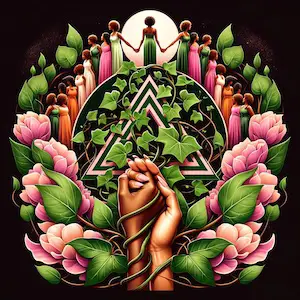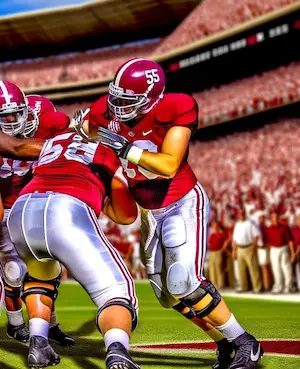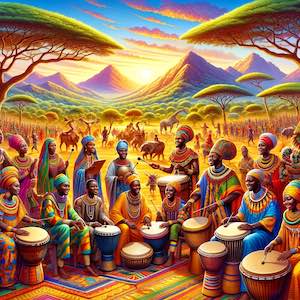The best Rugby World Cup chants are more than mere rhythmic expressions; they are the heartbeats that synchronize every spectator, every player, narrating tales of triumphs, trials, and unwavering spirits. This journey through melodies and harmonies, cultural narratives, and historical echoes unveils the remarkable power and intrinsic value of these chants, illuminating how they sculpt the emotional, psychological, and cultural landscapes in the world of rugby.
Join us, as we traverse through the harmonious pathways of the best rugby world cup chants, exploring their origins, meanings, impacts, and the unbreakable bond they forge between the players on the field and the sea of supporters in the stands.

Table of Contents
Beat World Cup Chants by Country
- South Africa: “Ole Ole Ole Ole, Bokke, Bokke!”
- Lyrics: “Ole Ole Ole Ole, Bokke, Bokke!”
- Repeat: Usually repeated several times, especially during exciting moments in the game.
- Meaning: An expression of support and cheer for their team, the Springboks (“Bokke” in Afrikaans).
- England: “Swing Low, Sweet Chariot”
- Lyrics: “Swing low, sweet chariot, Coming for to carry me home, Swing low, sweet chariot, Coming for to carry me home.”
- Repeat: Often repeated throughout the match during pivotal moments and victories.
- Meaning: Adopted from a spiritual hymn, the song is now synonymous with English rugby, although its original context related to the struggles of American slaves.
- New Zealand: The “Ka Mate” Haka
- Lyrics: “Ka mate, ka mate! ka ora! ka ora!… Tēnei te tangata pūhuruhuru, Nāna nei i tiki mai whakawhiti te rā.” (Translation: “It is death! It is death! It is life! It is life!… This is the hairy man, Who brought the sun and caused it to shine.”)
- Repeat: Performed once before the start of the match.
- Meaning: A Maori war dance performed before matches, signifying challenge and resistance, whilst paying homage to their indigenous culture.
- Wales: “Bread of Heaven (Guide Me, O Thou Great Redeemer)”
- Lyrics: “Guide me, O thou great redeemer, Pilgrim through this barren land; I am weak, but thou art mighty, Hold me with thy powerful hand.”
- Repeat: Sung usually once before the game, but may be reprised during the match.
- Meaning: A hymn asking for divine guidance and support, symbolizing collective Welsh pride and unity.
- Japan: “Nippon Ole”
- Lyrics: “Nippon, Ole, Ole, Ole! Nippon, Ole, Ole, Ole!”
- Repeat: Repeated continuously by fans, especially to uplift the team during strained moments.
- Meaning: A simple cheer to express support for the national team, utilizing the Spanish “Ole” to signify cheer and celebration.
- France: “Allez Les Bleus!”
- Lyrics: “Allez les Bleus! Allez les Bleus!”
- Repeat: Sung consistently throughout the match, more so during intense plays.
- Meaning: A straightforward cheer translating to “Go the Blues,” encouraging the French team.
- Australia: “Waltzing Matilda”
- Lyrics: “Waltzing Matilda, waltzing Matilda, You’ll come a-waltzing Matilda, with me, And he sang as he watched and waited till his billy boiled, You’ll come a-waltzing Matilda, with me.”
- Repeat: Often sung through various intervals in the game.
- Meaning: An unofficial anthem recounting the story of a “swagman” (traveler), reflecting an inherent spirit of freedom and resistance.
- Ireland: “Ireland’s Call”
- Lyrics: “Come the day and come the hour, Come the power and the glory, We have come to answer our country’s call, From the four proud provinces of Ireland.”
- Repeat: Traditionally sung once, before the commencement of the match.
- Meaning: A song symbolizing unity among Irishmen, irrespective of geographical or political divisions.
- Scotland: “Flower of Scotland”
- Lyrics: “O Flower of Scotland, When will we see your like again, That fought and died for, Your wee bit hill and glen.”
- Repeat: Typically sung once before the match.
- Meaning: Commemorating the victory of Scots, under Robert the Bruce, over England’s Edward II, it symbolizes pride and resilience.
- Italy: “Fratelli d’Italia”
- Lyrics: “Fratelli d’Italia, L’Italia s’è desta; Dell’elmo di Scipio S’è cinta la testa.” (Translation: “Brothers of Italy, Italy has awakened; Scipio’s helmet She has put on her head.”)
- Repeat: Commonly played once before the match, and fans might sing portions during exciting moments.
- Meaning: Translating to “Brothers of Italy,” it’s a patriotic song that expresses unity and dedication towards the country.
- Argentina: “Vamos, Vamos Los Pumas!”
- Lyrics: “Vamos, vamos, Los Pumas, Que esta banda quilombera, No te deja, no te deja de alentar.” (Translation: “Go, go, Los Pumas, This rowdy crowd, Will not stop, will not stop cheering you on.”)
- Repeat: Consistently during the match, particularly during offensive plays and scoring moments.
- Meaning: A direct cheer which translates to “Go, Go The Pumas!” boosting the morale of the Argentine team.
- Fiji: The “Cibi” War Dance
- Lyrics: “Rai tu mai, rai tikoga, Tikoga vaka domoni, Domoni dina sega na tamata, Sega na tamata e dau kocokoco.” (Translation: “Look here, always stand firm, Stand firm like a devil, The devil that fears no man, No man can outdo.”)
- Repeat: Usually performed once, prior to the match.
- Meaning: A battle cry and a challenge to opponents, signifying strength and unity among Fijian warriors.
- Georgia: “Lelo, Lelo”
- Lyrics: “Lelo, Lelo, Sakartvelo!” (Translation: “Try, Try, Georgia!”)
- Repeat: Frequently during thrilling or decisive moments of the match.
- Meaning: Often sung alongside a traditional Georgian dance, representing bravery and national pride.
- Uruguay: “Vamos, Vamos Los Teros!”
- Lyrics: “Vamos, vamos los Teros, Vamos, vamos a ganar, Que esta banda nunca te va a dejar, Te va a alentar de corazón, Esta es tu hinchada que te quiere ver campeón.” (Translation: “Go, go Los Teros, Go, go to win, This crowd will never leave you, Will cheer you from the heart, This is your fans who want to see you champion.”)
- Repeat: Frequently through the match to rally the team and celebrate promising plays.
- Meaning: A cheer translating to “Go, Go Los Teros,” boosting and expressing support for their team.
- Namibia: “Go Biltongboere, Go!”
- Lyrics: “Go Biltongboere, Ons staan agter jou, Vorentoe Biltongboere, Maak ons trots, nou!” (Translation: “Go Biltongboere, We stand behind you, Forward Biltongboere, Make us proud, now!”)
- Repeat: Repeated several times during the game, especially during moments of offensive play or when the team scores.
- Meaning: Encouragement for their team, using an affectionate nickname that means ‘biltong farmers’, reflecting a part of their culture.
In each of these chants, you can sense the passion, the unity, and the collective spirits of the fans and nations, rallying their warriors on the field with melody and rhythm. Such chants have become synonymous with the identity of each rugby team, encapsulating the fervor and the rich cultural narratives that pave the way towards triumph and glory on the rugby battlefield.
Famous World Cup Chants
“Waltzing Matilda” – Australia
Known as Australia’s unofficial national anthem, “Waltzing Matilda” speaks of a “swagman” who travels by foot, exploring the country. The repetitive chorus serves not only as a unifying echo through the stands but is symbolic of the nomadic, undeterred spirit of the nation. The Wallabies march onto the pitch, fans young and old immerse in the euphony of these timeless lyrics, echoing the valiant tales of persistence and resistance.
“Ireland’s Call” – Ireland
“Ireland’s Call” serves as an amalgamation of unity and collective strength. Being a song that dually represents Northern Ireland and the Republic of Ireland, its melody resounds with the indomitable spirit of togetherness. The crowd’s robust, harmonious voice infuses the team with motivation and the vigor to challenge any opponent that comes their way, embodying the resilient Irish spirit that pervades across generations.
“Swing Low, Sweet Chariot” – England
The gospel song, transformed into an emblematic rugby chant, “Swing Low, Sweet Chariot” is laced with historical and cultural undertones. Echoing through Twickenham, it becomes a tangible pulsation, where every spectator, every player becomes entwined in a shared rhythmic entity. The melody serves as an unspoken yet potent dialogue between the players and the fans, transcending mere encouragement into a metaphoric sweep of collective effort and hope.
The Haka – New Zealand
The All Blacks’ Haka is a prime exemplification of intimidation and cultural display rolled into a pre-match tradition. As the players initiate their Maori war dance, it isn’t just a spectacle but a narrative, an ancestral war cry, and a modern battle preparation against opponents. This cultural marvel tells tales of warriors, social interaction, and is deeply steeped in the rich tapestry of Maori culture and legend.
“Delilah” – Wales
The Welsh chants, especially “Delilah,” are a pivotal component of the nation’s rugby culture. Tom Jones’ song of jealousy and betrayal is transformed in the stadium into a hymn of camaraderie and implicit understanding between the spectators and the players. The poignant and passionate tune, juxtaposed against the backdrop of a rigorous rugby match, offers a vibrant, somewhat contradictory, yet wholesomely entertaining ambiance that is uniquely Welsh in its character and form.
“Allez Les Bleus” – France
“Allez Les Bleus,” a straightforward yet powerful chant, is a direct, unfiltered conduit of support from the French spectators to their team. Its simplicity does not detract from its vigor. Instead, it serves as a consistent, unwavering stream of encouragement, signaling unity, solidarity, and an undeterred spirit that seeks victory and pride in their team and nation.
Chants have consistently been an intrinsic part of rugby culture, establishing an unspoken pact between the players and spectators, uniting them in victory and defeat, through trials and triumphs. They signify more than just words and melodies; they are the voices of history, culture, and collective identity, vibrantly coming alive within the stadiums, forging memories and stories that will be passed down through generations.
Unity and Solidarity Through Chants
Audience participation through chants at rugby matches transcends beyond mere vocal expressions; it embodies a potent collective spirit that unites individuals from various walks of life. When thousands lend their voices to cheer “Swing Low, Sweet Chariot” or “Allez Les Bleus”, there is a seamless blending of unity and solidarity that reverberates across the stadium. The collective voice emanating from the audience fortifies a sense of belonging and comradeship among the fans, seamlessly intertwining emotions, aspirations, and cultural identities.
A Psychological Boost for Teams
For the teams on the field, the chants serve as a psychological impetus. The rhythmic harmonies and resounding echoes of supportive chants permeate through the players, offering a surge of adrenaline, motivation, and a profound realization of the unwavering support that envelops them. It is not merely a chant; it’s a potent reminder of the faith, belief, and hopes that every spectator has vested in them, prompting them to push boundaries and strive for victory.
An Intimidating Atmosphere for Opponents
Concurrently, the roaring chants from the audience can potentially unsettle and intimidate the opposing teams. A wall of unified, vocal, and impassioned fans can instigate a psychological warfare, where the opposition is not merely battling the players on the field but combating the overwhelming, omnipresent voices of their supporters. The consistent, rhythmic, and fervent chants serve as a subtle, yet powerful, reminder of the adversities and pressures that loom large in competitive sports.
Bridging Cultural and Social Gaps
Rugby chants also serve as a bridge, erasing social and cultural disparities, forging a momentary yet impactful unity where every individual is bound by a common thread – their love for the team and the sport. Diverse social and cultural groups harmonize their voices, creating a tapestry of sounds that signify unity, tolerance, and mutual respect. In those moments, the societal hierarchies, differences, and disparities dissipate, making way for an egalitarian environment where every voice, irrespective of its origin, is integral and valued.
Perpetuating Tradition and Culture
The chants often carry historical, cultural, and traditional connotations, making the audience an active participant in the perpetuation and dissemination of these cultural narratives. When the New Zealand audience partakes in the Haka, or when the Welsh belts out “Delilah,” they are not merely creating an atmosphere; they are also acting as custodians of their cultural heritage, sharing and immortalizing their traditions and stories through generations.
A Cathartic Emotional Outlet
For the audience, participating in chants also serves as a cathartic outlet, a medium through which they can express their joys, sorrows, anticipations, and frustrations. It’s a collective emotional release, where personal emotions amalgamate into a collective expression, finding resonance and empathy among fellow spectators.
The audience’s active participation in rugby chants is thus multifaceted, contributing not merely to the vibrancy of the match but also playing a pivotal role in the psychological, cultural, and emotional dynamics that define and enrich the sport of rugby.
See Related Posts

Gregorian Christmas Chants

Love Spell Chants

Best Softball Chants for U12

AKA Sorority Chants

Argentina Football Chants

Short Chants and Cheers

Alabama Football Chants

Everything to Know About African Chants

